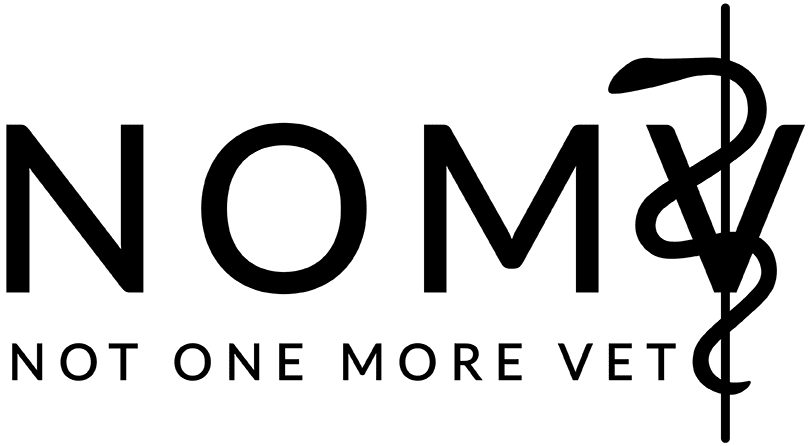Practicing Self-Love: Sharing Compassion with Yourself
Practicing Self-Love: Sharing Compassion with Yourself by Gabby Cadieux, Outreach Coordinator NOMV 2025-02-11
As the month of February barrels on with heart shaped chocolates and oversized teddy bears lining store shelves, themes of giving to others consume our modern celebrations of love. The giving nature of this month is nothing new for those in the veterinary industry who are caregivers by trade. Though, what seems to be missing is any acknowledgement of the very necessary generosity and love we should be giving to ourselves.
Identifying Self-Love & Self-Compassion
According to Sharon Martin, DSW, LCSW, self-love entails accepting yourself wholeheartedly, treating yourself with kindness and respect, and prioritizing your physical and emotional health. It has been shown that adapting techniques of self-compassion are crucial in creating a positive internal dialogue and show a direct correlation to sustained feelings of happiness, curiosity, and connectedness, while showing a decrease in anxiety, depression, and fear of failure [Neff, 2009] .
A common misconception of self-compassion is that there is little to no strength involved in the practice. On the contrary, it involves acknowledging mistakes made and, rather than impulsively judging or criticizing yourself, it invites the individual to fully process those feelings or experiences. Self-compassion encourages individuals to be more mindful in recognizing that imperfection is a part of the human experience and learning from our mistakes only creates space for growth, resilience, and inner strength.
Examples & Exercises in Self-Compassion
There are countless self-compassion techniques that can be helpful for folks to begin practicing in building their relationship to self. One of those techniques is self-kindness or adjusting our internal dialogue to one that is more mindful of our circumstances. We know all too well of that little voice in our head that can be the source of overthinking, critiquing, and judging. Rather than allowing ourselves to dwell in those kinds of thoughts, self-kindness offers another route in restructuring the way we talk to ourselves.
How Would You Treat a Friend Exercise
For instance, should you find yourself in a situation where you are experiencing thoughts of insecurity ask yourself, how would you treat a friend if they were in the same situation. Reflect on how you would express support to your friend, noting the tone in which you would respond, and the language you would use.
Oftentimes, our response to others’ feelings versus our own can be starkly different. It’s important to remember that we are just as deserving of our own understanding and validation.
Changing Critical Self-Talk Exercise
Additionally, words of affirmation can be especially helpful in this process of reorienting our self-talk to be more compassion-focused. Should you find yourself experiencing thoughts such as:
- “I’m so anxious”
- “I’m not doing good enough”
Try using phrases such as:
- “I’m capable of navigating challenges that come my way”
- “This is a difficult time, and I’m doing the best I can”
More of these examples can be found in NOMV’s ‘Positive Self-Talk’ thread.
Please note that implementing these practices is a skill just like any other and there’s no better way to practice than to be gentle with yourself as you learn to make self-compassion more habitual.
For more information about NOMV’s resources, please refer to our website at www.nomv.org.
References
- Boyes, Alice. “13 Self-Compassionate Phrases” Psychology Today, 8 September 2023
- Martin, Sharon. “The Power of Self-Love.” Psychology Today, Sussex Publishers, 7 July 2023
- Neff, Kristin D. “The Role of Self-Compassion in Development: A Healthier Way to Relate to Oneself.” Human development vol. 52,4 (2009): 211-214. doi:10.1159/000215071
- Seppala, Dr. Emma. “The Scientific Benefits of Self-Compassion.” The Center for Compassion and Altruism Research and Education, 23 Mar. 2023
Recent Posts
About Us
NOMV addresses well-being in the veterinary medical community through evidence driven programming that raises awareness on mental health in the community while providing innovative prevention and intervention programming.
